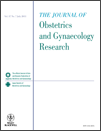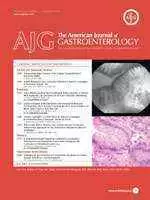
Celiac.com 12/20/2011 - There has been some controversy surrounding the idea that there is a higher prevalence of undiagnosed celiac disease in people with infertility, with some studies finding it but others not. Most of these studies have been performed in Europe; only two to date have taken place in the United States. Peter Green’s group at Columbia recently tried to establish the actual prevalence of undiagnosed celiac disease in the infertile population in the United States, to determine if it would make sense to routinely screen a subgroup of infertile patients for celiac disease. Their results are published in The Journal of Reproductive Medicine.
 Study participants were recruited from the population who came to Columbia’s Center for Women’s Reproductive Care to deal with their infertility issues, which they had been coping with for at least a year. One hundred eight-eight women, ages 25-39, volunteered to participate in the study. They underwent serological screening for tissue transglutaminase (tTG IgA) and endomysial antibodies (EMA IgA), and measurement of total IgA and both IgA and IgG antigliadin antibodies was done to control for the potential IgA deficiency in some individuals. Four of the 188 patients enrolled in the study were diagnosed with celiac disease, making the prevalence of celiac disease in this population 2.1%. Yet a subgroup analysis of the prevalence of celiac disease in women with unexplained fertility revealed a prevalence of 5.9%, which achieves statistical significance.
Study participants were recruited from the population who came to Columbia’s Center for Women’s Reproductive Care to deal with their infertility issues, which they had been coping with for at least a year. One hundred eight-eight women, ages 25-39, volunteered to participate in the study. They underwent serological screening for tissue transglutaminase (tTG IgA) and endomysial antibodies (EMA IgA), and measurement of total IgA and both IgA and IgG antigliadin antibodies was done to control for the potential IgA deficiency in some individuals. Four of the 188 patients enrolled in the study were diagnosed with celiac disease, making the prevalence of celiac disease in this population 2.1%. Yet a subgroup analysis of the prevalence of celiac disease in women with unexplained fertility revealed a prevalence of 5.9%, which achieves statistical significance.
Celiac.com Sponsor (A12):
All four women reported suffering from gastrointestinal symptoms before their diagnosis, and they had a significantly increased prevalence of Irritable Bowel Syndrome as well. The authors admit that this is quite a small sample, and because screening was voluntary, it is also a selected population.
But even so, they suggest that physicians should inquire about GI symptoms when patients present with infertility, and that screening for celiac is appropriate in those with unexplained infertility who complain of gastrointestinal distress. They even go so far as to posit that all women with unexplained infertility be screened for celiac, even if they don’t have gastrointestinal trouble.
All four women conceived within ten months after starting on a gluten free diet, two naturally and two with help. And all of them went on to deliver healthy babies.
Source:
- Open Original Shared Link









Recommended Comments
There are no comments to display.